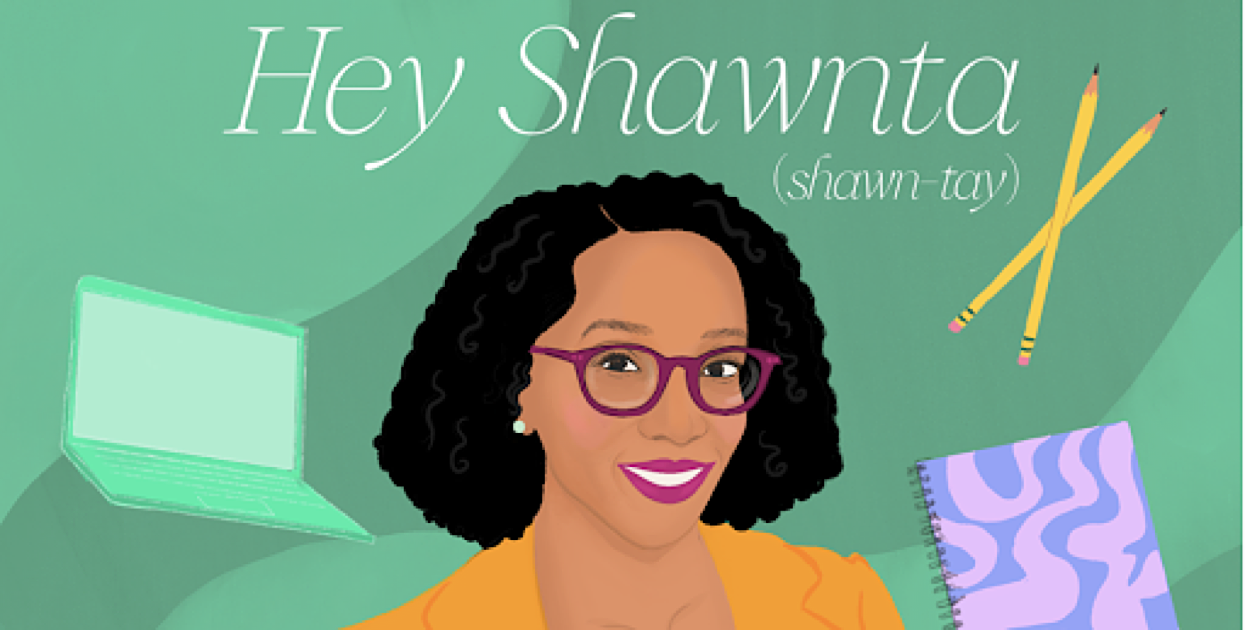
Hey Shawnta!
Does dyslexia present differently in gifted or multi-exceptional learners?
Signed,
Tenacious Teacher
- because we all need a good alliteration
If I could earn one more certification, it would be one that would allow me to support gifted/high-ability learners better. Despite not having a certification, I was a high-ability building lead for part of the time that I was an elementary literacy coach.
Personally, I was a person who entered honors classes sophomore year after a teacher told me I was too bright to be in regular classes. Imagine being on the regular diploma track and then getting switched to the academic honors diploma. It was tough.
Many times, gifted students are overlooked. They tend to get the scores that help the school’s data, but who is helping them? Gifted children are not a monolith. Some are considered 2e. This stands for double exceptional or twice exceptional and, for the most part, describes a gifted child with a disability.
For example, gifted children can also have dyslexia. 2-5% of gifted learners also have a disability. The American Brain Foundation defines dyslexia as “a brain-based learning disorder that causes difficulties with reading and processing written language.”
Minnesota Psychology notes that dyslexia can be masked in 2e children. MP calls it “stealth dyslexia.” The organization explains that the “underlying dysfunction in reading can be hidden by the student’s ability to compensate, especially in the area of comprehension.”
The Davidson Institute suggests we use a strength-based approach. From my work with gifted students, I know how they can sometimes become easily frustrated when they cannot master a task. Focusing on their strengths and using those strengths to help with their gaps could help them close gaps.
Also, the Dyslexia International Institute suggests a “multisensory, structured language approach used for the treatment of dyslexia. Like other students with dyslexia, gifted students may benefit from instruction that includes a variety of stimuli, technology, and multiple sensory modes.”
Minnesota Psychology also has a few suggestions for 2e students who have dyslexia. The organization suggests “providing alternative access to content and demonstration of knowledge and reading intervention.”
I can tell you, as a person who has been in education for nearly two decades, there seems to be some stigma about providing intervention for gifted students.
All students deserve access to intervention.
If intervention is implemented correctly, no student should need it for their entire educational career.
The first and most powerful advocate for 2e children is their parents. Hopefully, one day, school leaders and teachers will become better informed about 2e students and how to support them.
Shawnta
Shawnta (Shawn-tay) S. Barnes, also known as Educator Barnes, is a married mother of identical twin boys. She navigates education from not only the educator’s perspective but also the parent’s perspective. She has been an educator for nearly two decades. Shawnta works with K-12 schools, universities, & education adjacent organizations through her education consulting business Blazing Brilliance. She is an adjunct college professor, supervises student teachers, Indy Kids Winning Editor-in-Chief, Brave Brothers Books Co-founder, & CEO, and Brazen Education Podcast host. She holds five education licenses: English/language arts 5-12, English to speakers of other languages P-12, library/media P-12, reading P-12, and school administration P-12, and she has held a job in every licensed area. Previously, she has served as a school administrator, English teacher, English learners teacher, literacy coach, and librarian. She won the 2019 Indiana Black Expo Excellence in Education Journalism Award. In 2023, she completed her doctorate in Literacy, Culture, and Language Education with a minor in Learning Sciences. She is an urban gardener in her spare time and writes about her harvest-to-table journey at gardenershicole.com. To learn more about Shawnta, visit educatorbarnes.com.
The fight for educational equity has never been just about schools. The real North Star for this work is providing opportunities for each child to thrive into adulthood. This means that our advocacy...
Your donation will support the work we do at brightbeam to shine a light on the voices who challenge decision makers to provide the learning opportunities all children need to thrive.
Ed Post is the flagship website platform of brightbeam, a 501(c3) network of education activists and influencers demanding a better education and a brighter future for every child.
© 2020–2024 brightbeam. All rights reserved.